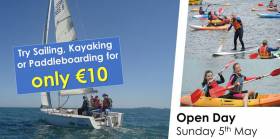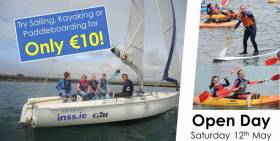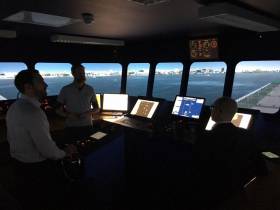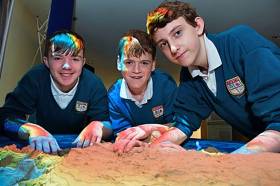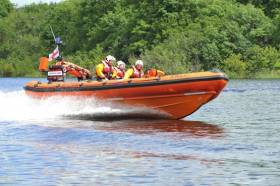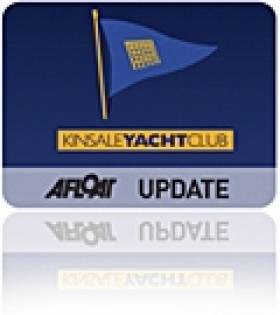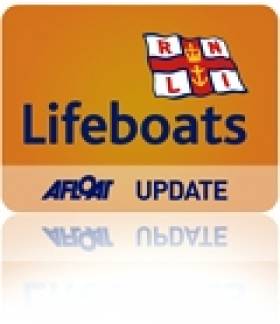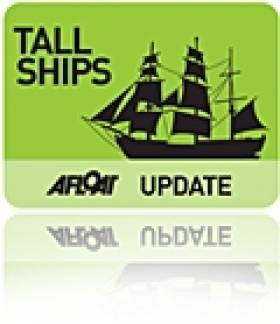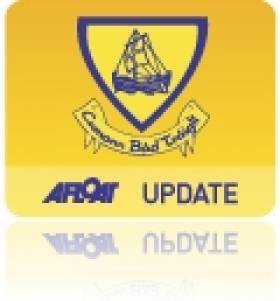Displaying items by tag: Open Day
Ferry 'Open Day' During Maritime UK Week for School Children & Sea Cadets Onboard Scilly Isles Passenger Cargoship
School children and sea cadets will have a unique opportunity to have a behind-the-scenes tour of the Isles of Scilly Steamship ferry with the event held tomorrow, as part of Maritime UK Week (10-16 October), writes Jehan Ashmore.
The veteran passenger/cargoship Scillonian III which was purpose built in 1977 at Appledore Shipbuilders, links Penzance Harbour, Cornwall and the Isles of Scilly off south-west England.
The Open Day invitations has been sent to local school children, Sea Cadets and fans of the Isles of Scilly Steamship Group’s faithful passenger ship which has served islanders and tourists alike for 45 years on a route which takes in the scenic sights of the Cornish coast.
Tomorrow's (11 October) Open Day will be special one-off event held during a non-sailing day when the 67.7m vessel is berthed in the ship's homeport of Penzance.
The visiting school children and sea cadets will be able to meet the captain and crew, tour the ship’s bridge and look around the pristine engine room of the 1,346 gross registered tonnes ferry.
The event is among those organised during Maritime UK Week, which aims to shine a spotlight on the latest developments in the maritime sector and engage people across the UK with the maritime world including taking a career.
It is in domestic UK waters where the 485 passenger Scillonian III plays a key role plying between Penzance and St. Mary's, the largest of the Scilly Isles with the ferry running on a seasonal basis between March and November.
Asides carrying general cargo / perishable goods, vehicles are handled by the ship's crane into the hold or positioned as deck cargo along with containers.
Outside of the shoulder and main tourism season, the ferry is laid up during the winter, however a cargoship service continues to serve islanders throughout the year.
In addition passenger air services are also operated by the company.
As Afloat previously reported, there are plans to replace the ageing ferry with a passenger/cargoship newbuild, the 'Scillonian IV'. The 72m new ferry will transport more passengers with a capacity for 600.
Also planned is a 45m freighter newbuild, with a limited capacity for 12 passengers.
Try Sailing And More At INSS Open Day This Sunday
The Irish National Sailing & Powerboat School is hosting its annual Open Day this Sunday 5 May with opportunities to try sailing, kayaking or paddleboarding for only €10.
Children aged 7 and up and their families can get to grips with the INSS’ fleet of 1720 Sportboats, as well as easy-to-master sit-on-yop kayaks and popular stand-up paddleboards, guided by the school’s experienced instructors.
Waterproof overalls and lifejackets will be provided for sailors, wetsuits and buoyancy aids for kayakers and paddleboarders, and hot showers will be provided after your fun on the water — so all you need to bring is your enthusiasm!
Three times slots are available on the day (10am-12pm, 12.30pm-2.30pm and 3pm-5pm) and booking must be made in advance. For more details see the INSS website HERE.
INSS Open Day Is Three Weeks Away
#INSS - Saturday 12 May is the date to save for the Irish National Sailing & Powerboat School’s open day for 2018.
All ages but especially children are welcome to try sailing, kayaking or paddleboarding from 10am to 5pm at the school’s Dun Laoghaire Harbour base for only €10.
And if you catch the sailing bug, the school has various courses for all abilities running in May and beyond.
For details on the open day, see the Facebook event page HERE.
National Maritime College of Ireland (NMCI) Open Day In October
#NMCIopenDay - The National Maritime College of Ireland (NMCI) is set to open it’s doors next month to the public for the annual College Open Day on Thursday, 26th October.
The nautical education training college located at Ringaskiddy, lower Cork Harbour will be open between 10:00 and 15:00. (Booking is required for large groups). For contact details, see below.
The following is how the NMCI descibe themselves as the first third level college in the country to be built under the Government’s Public-Private Partnership scheme. The Public-Private Partnership (PPP) is a partnership between the public and private sector for the purpose of delivering a project or service traditionally provided by the public sector.
In this case the public partners are the Cork Institute of Technology (CIT) and the Irish Naval Service (INS) and the private partner is Focus Education. This model allows the college management and teaching staff to concentrate on education while the private partner is responsible for services to the college and the maintenance of facilities.
Please email the NMCI to: [email protected] or telephone Noreen on 021-4335607 for further information visit the NMCI website here.
Marine Institute Open Day In November
#MarineScience - The Marine Institute is set to open its doors for its annual Open Day on Wednesday 23 November from 9.30am to 3pm.
The Open Day at Ireland's national agency for marine research, technology, development and innovation is especially aimed at second level students from Transition Year to the Leaving Cert cycle, their teachers and parents.
Visitors will have the opportunity to tour the state-of-the-art facilities on offer in Oranmore and to meet with researchers and scientists and hear about their careers in the marine.
They will also get to see some of the institute’s innovative work through a series of interactive exhibitions, including seabed mapping, research vessel operations and oceanography, as well as in fisheries and the marine environment.
There are three two-hour sessions available for student groups on the day: 9.30am to 11.30am, 11.15am to 1.15pm and 1pm to 3pm.
Places are limited, and will be allocated on a first come, first served basis. To book, contact Kathleen Sweeney at [email protected] before Friday 28 October.
Last year the Marine Institute hosted some 300 Transition Year students during Science Week as part of the Galway Science & Technology Festival, as previously reported on Afloat.ie.
Open Day At Lough Ree RNLI Next Saturday
#RNLI - Lough Ree RNLI is holding an open day at the lifeboat station at Coosan Point next Saturday 11 June from 12 noon to 4pm.
All are welcome on the day to meet the crew, tour the station, see the lifeboat and join in the fun with face painting, colouring, games, goodies and lots more.
The Lough Ree crew's most recent callout was on Wednesday 25 May, when they assisted eight people on a 48ft motor cruiser that ran aground on a shoal north of Inch Turk.
With no one in any immediate danger and no sign of damage to the boat, the lifeboat crew set up a towline and moved the vessel into safe water, where the engine was started and the steering was checked for damage.
Under their own power, the group of holiday-makers then proceeded towards Hodson Bay. Weather conditions at the time were described as bright with a northerly Force 2 gentle breeze and calm waters.
Speaking following the callout, Lough Ree RNLI lifeboat operations manager Damien Delaney said: "Our lifeboat crew responded swiftly and were happy to assist and bring the vessel into safe water."
Kinsale Yacht Club Open Day Next Weekend
#Kinsale - Kinsale Yacht Club will host an Open Day from 2-5pm next Sunday 15 March, and Rear Commodore Caroline Forde has invited anyone to come, enjoy a cuppa and chat, and take a tour of the clubhouse.
Boat trips out of the KYC marina will also be available, weather permitting, while the club will be hosting a competition for free membership among other prizes.
It comes ahead of Kinsale's pre-St Patrick's Day maritime parade on Monday 16 March, for which participating boats will parade past the pier head, followed by refreshments in the clubhouse afterwards.
Open Day Success at Wicklow Lifeboat Station
#RNLI - A steady stream of people were welcomed by Wicklow RNLI at the lifeboat station's annual open day on Sunday 14 July.
Doors opened at 11am and the volunteer lifeboat crew was on hand to give tours of the station and its two lifeboats.
Activities included face painting and a joint display by Wicklow Fire and Ambulance Services. Garda, Customs and Civil Defence also put on displays throughout the afternoon, while the Irish Coast Guard helicopter flew over with the winch crew waving to the crowd below.
The final display was a simulated call-out of the inshore lifeboat. The three crew members onboard demonstrated how fast they could get into their lifeboat gear and launch.
The planned exercise involved a rescue to an injured sailor from a boat which was located in front of the crowd. The crew handed him over to a waiting ambulance.
Folk group Sheringham Shantymen travelled from Norfolk for the open day to see the station's inshore boat, which the group funded and which was named in their honour at a ceremony in 2007.
The Shantymen entertained the crowd with music and concluded the open day with a rendition of the lifeboat anthem, Home From The Sea.
Speaking after the event, Wicklow RNLI volunteer lifeboat press officer Tommy Dover said: "We have had a fantastic weekend with the Sheringham Shantymen. One of the highlights was the concert on Saturday night where the crew was invited to join the group on stage to sing Home From the Sea.
"The crew has a long association with the Shantymen and the lifeboat they funded has rescued 32 people to date at Wicklow."
Meanwhile, a successful sea safety roadshow was held at Sligo Bay RNLI during the weekend's Sea Shanty Festival.
Numerous lifejackets were checked with many having various faults such as corded cylinder, loose cylinder or out of date firing heads. Many people also sought advice about flares, anchors and VHF radios.
RNLI Sea Safety Roadshow adviser Joe Morr said: "It was a very successful weekend in Rosses Point and I hope to bring the roadshow back again next year."
Tall Ships Training Opportunities for Young People Across Ireland
#TALL SHIPS - The organisers of the Tall Ships Races visit to Dublin are inviting young people to get involved by becoming 'trainees' aboard the fleet as they race from Spain to Ireland this summer.
The 18 ships (as of last November) are set to sail from A Coruña in northern Spain to Dublin on the final leg of this year's race over an estimated ten-day period from 13-23 August.
Young people across Ireland can now apply to be trainees on board the tall ships and take part in a voyage as crew. No previous experience is necessary.
Open information days are planned for this weekend from tomorrow (Friday) 17 February to Sunday 19 February from 12pm to 6pm daily at the CHQ building in the IFSC, close to the Jeannie Johnston museum.
Anyone that is interested in taking part or receiving further information can register at www.dublintallships.ie/trainees/
Meanwhile, organisers are also making funding available for the young people of the capital.
The Dublin City Tall Ships Funding will cover the costs of 25 trainees from Dublin to sail on the ships as they race from Spain.
Any youth organisation within Dublin City Council Administrative Area can nominate members of their organisation. Alternatively, individuals may apply and seek the nomination of a youth organisation such as a youth group or community group; school or college; sports club or Scouts group.
Details about this funding programme and other opportunities are included in the information bulletin attached below.
For further information contact trainee recruitment officer Michael Byrne at [email protected].
Tralee Bay Sailing Club Open Day
To add to the festivities Tralee Bay Sailing Club are delighted to welcome anyone next Sunday between 2pm-5pm who would like to try out a range of water based activities for free!
Just come along to Tralee Bay Sailing School opposite the beach parking area in Fenit to see the range of water craft we have for you to try out. We will have kayaks, dinghies, motor-boat ribs and some larger cruising boats available for the afternoon. You will also be able to find out more information about the range of sailing & kayaking courses we offer throughout the summer from June to August inclusive.
Our Clubhouse will also be open where you can sit and relax with some refreshments from our bar whilst also enjoying the wonderful views Tralee Bay has to offer.
For further information contact:
Jacqui Browne 087-2610447 or Diarmuid Dineen 087-2531083
Email: [email protected]
Website: www.traleebaysailingclub.com


























